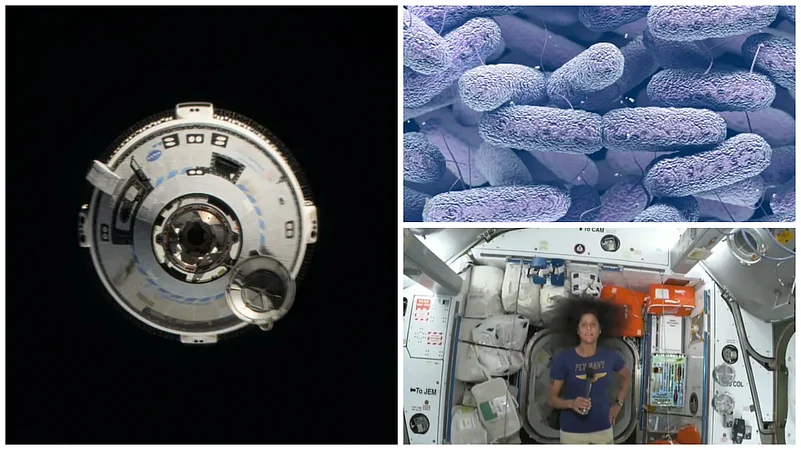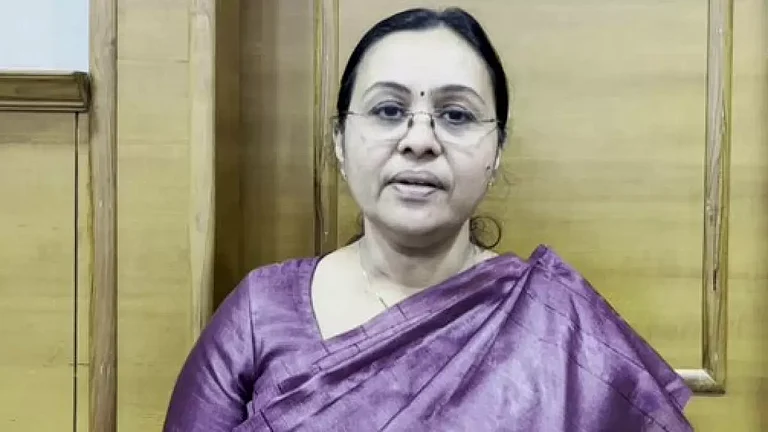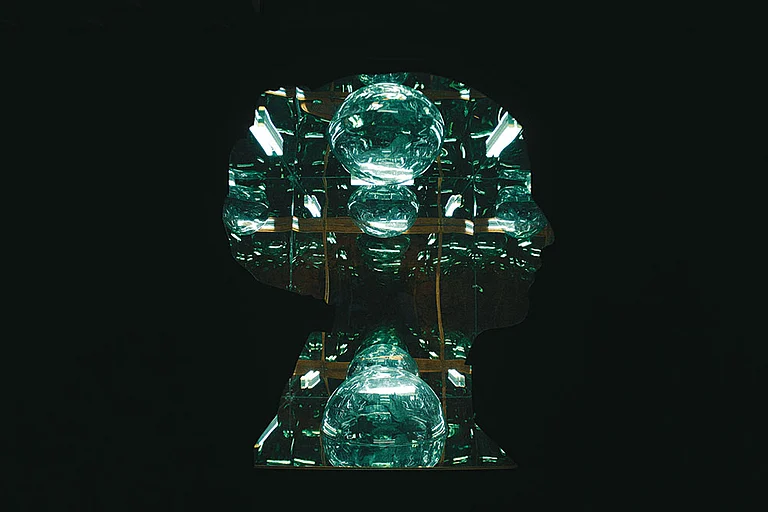National Aeronautics and Space Administration's (NASA) Indian-origin astronaut Sunita Williams and the eight other crew members on board the International Space Station (ISS) residing there with a multi-drug resistant "superbug", sparking concerns of respiratory problems that the bacteria may cause.
Sunita Williams and her colleague Astronaut Barry Eugene "Butch" Wilmore reached the ISS on board the new Boeing Starliner spacecraft on June 6, 2024, and are likely to spend over a week in the low earth orbiting laboratory before returning to Earth after testing the new spacecraft.
Scientists have reportedly found a multi-drug resistant bacteria named 'Enterobacter bugandensis' which has evolved and become more potent in the closed environment of the ISS. This bacteria infects the respiratory system.
It multi-drug resistance trait is what gives it the name 'superbug'.
Spacebugs are not extra-terrestrial life but bugs that managed to go undetected and travel hidden as co-passengers when they went to work at the ISS.
Flying space debris and micrometeorites are the usual causes of worry for the International Space Station but bugs that have been carried as co-travellers and now evolved over the last 24 years of continuous inhabitation of the space station pose as a big new concern.
What NASA Said On 'Superbug'
NASA said: "In a new scientific paper funded by an Ames Space Biology grant, Principal Investigator Dr. Kasthuri Venkateswaran of NASA’s Jet Propulsion Laboratory strains of the bacterial species Enterobacter bugandensis isolated from the International Space Station [ISS] were studied."
"Thirteen strains of E. bugandensis, a bacterium notorious for being multi-drug resistant, were isolated from the ISS. Study findings indicate under stress, the ISS isolated strains were mutated and became genetically and functionally distinct compared to their Earth counterparts. The strains were able to viably persist in the ISS over time with a significant abundance. E. bugandensis coexisted with multiple other microorganisms, and in some cases could have helped those organisms survive, NASA added.
Closed human-built environments, such as the space station, are unique areas that provide an extreme environment subject to microgravity, radiation, and elevated carbon dioxide levels, NASA said, adding that microorganisms introduced to these areas "must adapt to thrive."
"By delving into microbial dynamics in extreme environments, this research opens doors to effective preventative measure for astronaut health," NASA said.


























